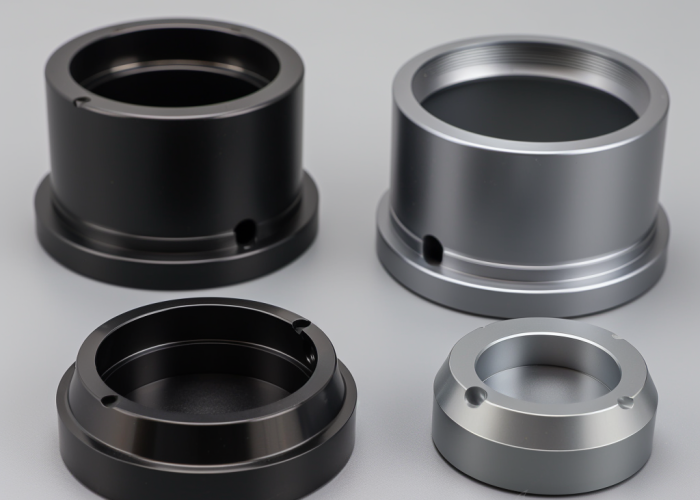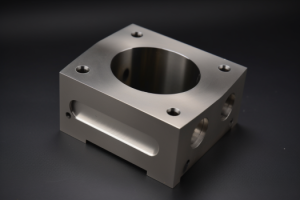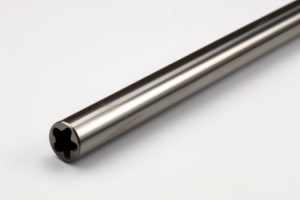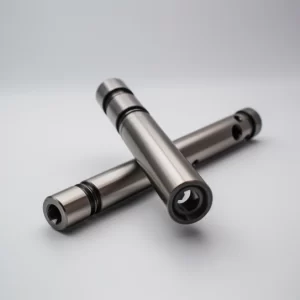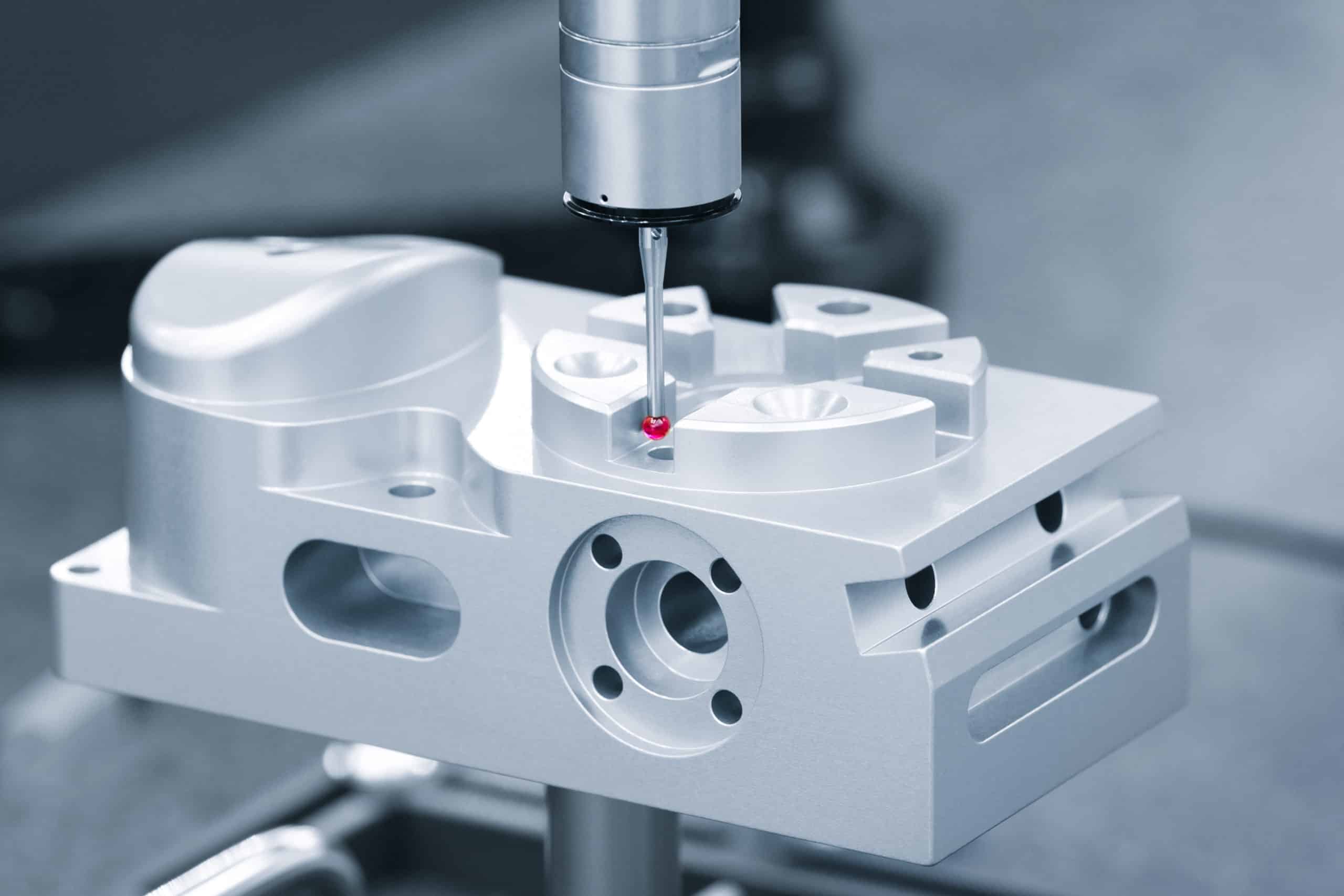Designing for CNC machining isn’t just about geometry — it’s about minimizing cost without compromising precision. With decades of experience manufacturing parts for aerospace, audio, and medical sectors, a few small material adjustments can dramatically improve both performance and price.
Choose CNC materials by matching strength requirements to application loads, balancing tolerance needs with material hardness, and comparing total costs including machining time. Start with 6061 aluminum for general use, 7075 for high strength, or engineering plastics for lightweight applications.
Learn what drives material costs, how hardness affects tolerances, and when plastic can replace aluminum—backed by real CNC production examples.
Table of Contents
Which CNC Materials Give Best Performance Without Breaking Budget?
6061 aluminum gives you the best bang for your buck — half the material cost of 7075 with plenty of strength for most applications. At $2-4/kg versus $6-8/kg for 7075, only upgrade when your part will actually break under heavy loads, not just because it sounds premium.
Real Cost Impact: For 100 brackets, you’ll pay $1,040 with 6061 versus $1,560 with 7075 — that’s $520 extra for strength you probably don’t need. 7075 offers nearly twice the tensile strength (83,000 psi vs 45,000 psi), but most brackets, enclosures, and frames won’t come close to needing that level of performance.
Quick Decision Guide — Pick the first one that meets your needs:
- General brackets, housings, frames, weldable parts: 6061 aluminum — proven reliability, excellent corrosion resistance, half the cost
- High-stress aerospace, military, racing components: 7075 aluminum — premium strength for premium applications
- Lightweight, non-critical housings: Engineering plastics (POM) — 70% weight savings when metal strength isn’t needed
The question isn’t which material is “better” — it’s which one actually fits your application. 7075 cracks when welded, costs twice as much, and machines are slower. Unless you’re building aircraft wing spars or military equipment, 6061 delivers the performance you need without the premium price tag.
Design Takeaway: Start with 6061 as your default choice. Only switch to 7075 if you can point to a specific failure mode that 6061 won’t handle. Your budget (and procurement team) will thank you.
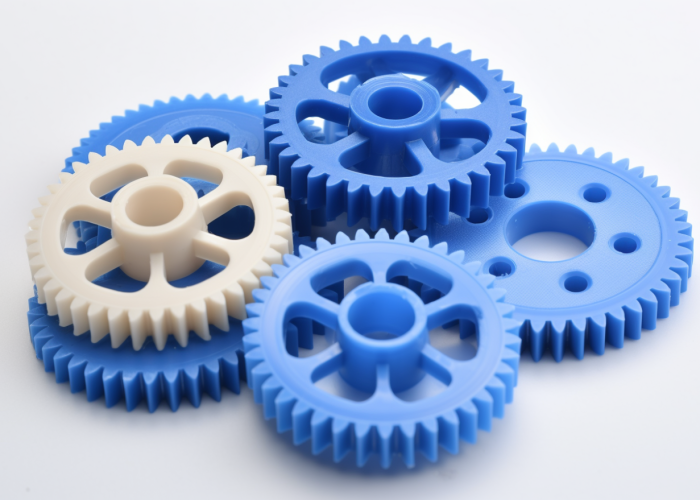
Is 6061 Aluminum Strong Enough or Should I Choose 7075?
For most parts, 6061 aluminum is plenty strong enough. With 40,000 psi yield strength, it handles typical equipment loads without breaking a sweat. The real question isn’t whether 6061 is strong enough — it’s whether your design is good enough.
Quick Decision Tool: If your part is a typical bracket or housing under 15,000 lbs total load, 6061 works fine. If you’re building racing components, aerospace parts, or military gear that takes real punishment, then consider 7075.
Most brackets, housings, and frames never see forces that would stress 6061 aluminum. We’ve machined thousands of parts where customers worried about strength, but the real failures came from poor mounting design or stress concentrations — not material weakness.
6061’s fatigue strength of 14,000 psi means parts will last essentially forever under normal loads. Compare that to your actual application: equipment housings rarely see more than their own weight plus some vibration. Audio chassis? Medical device brackets? Industrial enclosures? They’re nowhere near 6061’s limits.
Design Takeaway: Before upgrading materials, upgrade your design. Thicker walls, better geometry, and smart reinforcement will beat material swaps 90% of the time — and cost less too.
Can Plastic Replace Aluminum for CNC Machined Housings?
Plastic works great for housings when heat isn’t a factor. POM handles temperatures up to 110°C (230°F) and costs less than aluminum, but aluminum dissipates heat 200x better when thermal management matters.
Quick Decision Tool: Touch test — if your electronics make the housing warm during operation, choose aluminum. If it stays cool to touch, plastic saves money and weight.
If your housing protects electronics that run cool, plastic saves money and weight. If it houses power electronics, motor controllers, or LED drivers that generate heat, aluminum keeps things cool and prevents thermal shutdowns.
PEEK can handle up to 250°C continuously but costs 5-10x more than aluminum — only worth it for extreme chemical environments where aluminum would corrode away.
Real project example: Customer switched their control panel housing from aluminum to POM plastic. Saved 40% on cost, 60% on weight, and got better impact resistance. But they had to add metal threaded inserts for heavy mounting hardware.
Design Takeaway: The heat question decides everything. Cool electronics = plastic works. Hot electronics = aluminum required.
Why Do CNC Material Quotes Cost So Much and Which Is Cheapest?
That “expensive” quote isn’t about the aluminum cost — it’s the machine time that’s killing your budget. Machine rates run $15-150 per hour depending on complexity, while your material might only be $6 out of a $75 total quote.
Here’s what’s really happening: you’re paying for a skilled machinist running expensive equipment, not just buying metal. Every shop has minimum charges just to turn on the machines and set them up — even a simple bracket needs programming time, workholding setup, and quality checks.
The quantity game changes everything. Order 1 custom part and you’re paying $75 because that $20 setup cost hits you alone. Order 10 parts and suddenly you’re paying $22 each because everyone shares the setup. Order 100 and you’re down to $9 each — same part, totally different economics.
Material choice affects speed more than raw cost. Switching from harder materials to aluminum can increase cutting speeds up to 5 times, which means the machinist finishes faster and charges you less. That’s why 6061 aluminum often beats “cheaper” materials that eat up expensive machine hours.
Quick Cost Decision Tools:
- Real quote breakdown: $75 part = $6 material + $35 machining + $20 setup + $14 overhead
- Quantity pricing: 1 part = $75, 10 parts = $22 each, 100 parts = $9 each
- Instant savings: Order in batches, choose 6061 aluminum, avoid tight tolerances on non-critical features
Design Takeaway: Think about machine time, not material cost. Your wallet will thank you for choosing fast-machining materials and reasonable quantities.
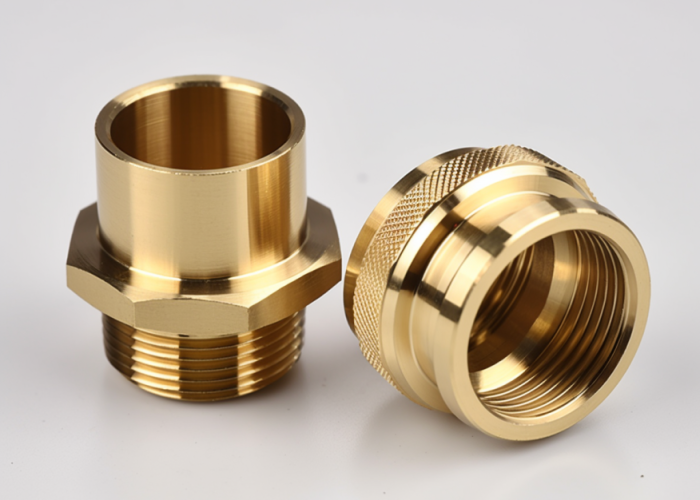
How Does Material Hardness Affect CNC Tolerance Capabilities?
Material hardness affects your bill more than your tolerances. Most common materials can hit ±0.05mm with the right setup — the difference is how much extra time and cost it takes to get there.
The real tolerance cost driver isn’t whether you choose aluminum or steel, it’s how tight you specify things. Going from ±0.13mm to ±0.05mm tolerances typically adds 15-30% to project costs. Push it to ±0.01mm and you’re looking at double or triple the price.
We had a customer spec ±0.01mm on every dimension of a medical housing — cost jumped from $180 to $320. When we suggested tight tolerances only where needed (gasket grooves, mounting holes) and standard everywhere else, the price dropped back down with zero impact on function.
The tolerance truth: aluminum and steel both machine to ±0.05mm just fine. Engineering plastics need wider tolerances around ±0.15mm because they expand and contract with heat. But the hardness difference between aluminum and steel? That affects how fast we can cut, not how precisely.
Tolerance Cost Impact:
- Standard ±0.13mm: Base price
- Precision ±0.05mm: Add 15-30% cost
- Tight ±0.01mm: Double to triple cost
- Smart strategy: Reserve tight tolerances for gasket grooves, bearing fits, threaded holes only
Design Takeaway: Before specifying tight tolerances, ask yourself what actually breaks if a dimension varies by ±0.05mm. Most of the time, the answer is “nothing important” — and that realization can save you 30-50% on machining costs.
Which Materials Stay Stable During and After CNC Machining?
Most materials stay stable if you control machining stress and heat, but expect 0.01-0.05mm movement in the first 2-4 weeks, then stability for years. The key is understanding that dimensional shifts usually come from locked-in stress during cutting, not the material itself changing over time.
During machining, thin walls can deflect under clamping forces or warp from uneven heating. Aluminum conducts heat away quickly but can deflect under pressure. Steel stays rigid during cutting but can develop residual stress if machined aggressively. Cast aluminum fixture plates consistently warped after final machining until we let rough-machined plates “sit” for about two weeks before finishing.
Stress release occurs when machining removes material that previously held residual stress in balance, causing non-uniform deformation that cannot be corrected by adjusting CNC paths or speeds alone. Aluminum is heated to temperatures between 570°F and 770°F for up to three hours for stress relief.
Movement Timeline & Prevention:
- First 2-4 weeks: Expect 0.01-0.05mm dimensional drift as machining stresses relax
- After 1 month: Parts typically stable for years if properly machined
- Stress relief needed: Parts with tolerances tighter than ±0.025mm or complex geometries
- Cost impact: Stress relief adds $50-150 per batch but prevents 15-25% scrap rates
Stability Rankings:
- Most stable: PEEK, POM, stress-relieved 6061 aluminum (±0.005mm long-term)
- Generally stable: Standard 6061-T6, 304 stainless steel (±0.02mm typical)
- Plan for stress relief: Thin walls under 2mm, parts removing >50% material
Design Takeaway: For critical dimensions, specify stress relief or plan for natural aging. Wall thickness over 2mm dramatically improves stability during machining.
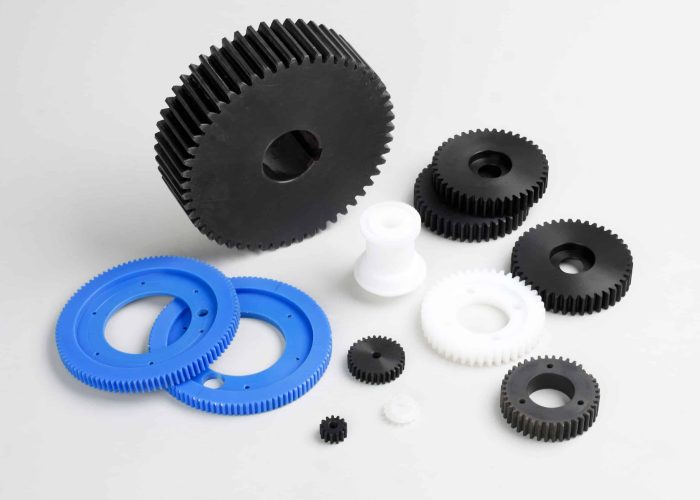
How Does Material Choice Affect CNC Surface Finish Quality?
Material choice determines achievable surface finish more than any other factor — aluminum easily reaches Ra 0.4μm while stainless steel struggles to achieve Ra 1.6μm. Aluminum can achieve Ra values between 0.1μm and 1μm, while materials like steel may have higher limits.
The standard as-machined surface roughness is 3.2μm (125 μin), but finishing cutting passes can reduce roughness to 1.6, 0.8 or 0.4μm. The material’s thermal conductivity and hardness determine how well it machines to fine finishes.
Surface Finish Achievability by Material:
- Excellent (Ra 0.4-0.8μm): 6061 aluminum, 7075 aluminum, brass, POM plastic
- Good (Ra 0.8-1.6μm): Tool steels, mild steel, PEEK with proper parameters
- Challenging (Ra 1.6-3.2μm): Stainless steel, work-hardening alloys
- Secondary operations needed: Titanium, hardened steels for cosmetic parts
Cost Impact of Surface Requirements: Going from standard Ra 3.2μm to Ra 0.8μm adds 25-40% machining time. Achieving Ra 0.4μm mirror finish requires specialized tooling and increases cost 2-3x over standard machining.
Application Requirements:
- Anodizing: Requires Ra <1.6μm for even color coverage
- Gasket sealing: Needs Ra <0.8μm for reliable sealing
- Bearing surfaces: Ra 0.4-0.8μm reduces friction and wear
- Cosmetic appearance: Ra <1.0μm for premium look and feel
Design Takeaway: Specify surface finish requirements early. Choosing aluminum over stainless steel can eliminate secondary polishing operations costing $15-50 per part.
What CNC Machining Problems Should I Expect with Each Material?
Every material has predictable problems, but most failures come from using wrong cutting parameters rather than material limitations. Knowing the common issues helps you design around them and set realistic expectations with your machinist.
Aluminum creates built-up edge on tools that ruins surface finish — solved with proper speeds and chip evacuation. 7075 is prone to welding defects like heat cracking and is generally considered unweldable. Stainless steel work-hardens if you cut too slowly, making subsequent passes nearly impossible.
Engineering plastics are heat-sensitive. Cut too fast and they melt into stringy mess. Cut too slow and they chip or tear. Plastics machine with 85% longer tool life due to reduced tool wear, but dull tools immediately cause surface quality problems.
Material-Specific Problems & Cost Impact:
- 6061 aluminum: Built-up edge adds 15% cycle time, galling in dry-cut threads requires cutting fluid
- 7075 aluminum: 25% harder on tooling, cannot be welded (design around this limitation)
- Stainless steel: Work hardening increases tool changes 3x, poor heat dissipation requires flood coolant
- Engineering plastics: Heat buildup causes dimensional issues, need 50% slower speeds than metals
- Tool steels: Scale formation, expect 40% longer machining times vs. aluminum
Design Prevention Strategies: Avoid deep narrow slots in stainless steel — causes work hardening. Don’t specify threads smaller than M3 in soft aluminum — they gall easily. Design draft angles in plastic parts — helps with thermal expansion. Plan for welded assemblies early if using 7075.
Design Takeaway: Discuss material challenges during design review. Most problems are preventable with proper machining parameters and part geometry. Factor material behavior into your design schedule and budget.
Conclusion
Material selection drives both performance and cost in CNC machining. Start with 6061 aluminum for most applications, upgrade only when strength or environmental requirements demand it, and always consider total machining cost over raw material price. Contact us to explore manufacturing solutions tailored to your product requirements.
Frequently Asked Questions
For most CNC machined parts, ±0.05mm is achievable with standard tooling and processes. Going tighter than ±0.01mm often requires specialized fixturing or climate-controlled environments, which increases cost significantly. We recommend tolerancing only critical features tightly and keeping others at ISO 2768-m levels for cost efficiency.
Surface finishes impact both aesthetics and function. For example, Ra 3.2μm is acceptable for most industrial parts, but medical housings or sealing surfaces may require Ra ≤0.8μm. Finer finishes often need slower passes or secondary polishing, increasing lead time and cost by 25-40%.
Engineering plastics like POM work for non-critical structures when operating temperatures stay under 110°C and loads are moderate. However, aluminum provides 5-10x better strength-to-weight ratio and superior heat dissipation. For structural applications above 15,000 psi stress, aluminum is typically required.
7075 aluminum costs 150% more in raw material and machines 25% slower due to its hardness. Additionally, 7075 cannot be welded and requires more frequent tool changes. Unless your application genuinely requires the extra strength (>50,000 psi), 6061 delivers better value.
Most properly machined parts experience 0.01-0.05mm movement in the first 2-4 weeks as machining stresses relax, then remain stable for years. For critical dimensions tighter than ±0.025mm, specify stress relief treatment. Parts with thin walls (<2mm) or complex geometries may require stress relief to prevent long-term drift.
6061-T6 is the most commonly used grade due to its excellent machinability and moderate strength (40,000 psi yield). If your part requires higher tensile performance, 7075 offers superior strength (73,000 psi yield) but costs 150% more and is harder on tools. 2024 is another high-strength option but has poor corrosion resistance.
